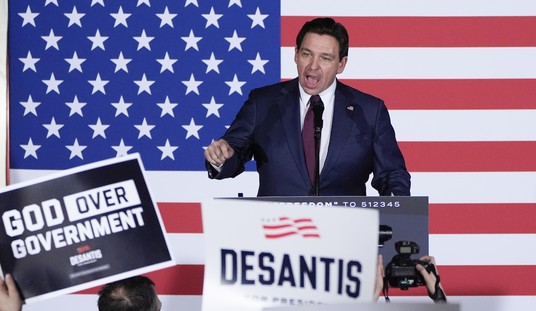How do you tell parents whose children suffer from a rare disease that they can’t access a new drug — not because it doesn’t work, but because the trial size didn’t involve more kids with the rare disease? Worse yet, how do you take it away from those children who have actually benefited from the testing of the drug? Jennifer McNary knows that Eteplirsen works, because both of her sons have improved since taking the drug for Duchenne Muscular Dystrophy. However, an FDA panel recommended that the agency reject approval for Eteplirsen despite the promising results — which will force the manufacturer back into an expensive and lengthy process of restarting its trial process, and take the drugs away from Austin and Max. CBS News reports on the decision, and its impact:
The drug — “Eteplirsen” — isn’t a cure, but slows down Duchenne’s progression by helping to restore a missing protein. Up to 15,000 boys in the U.S. have Duchenne. Austin and Max are two of roughly 100 kids in clinical trials.
Jennifer McNary is Austin and Max’s mother. She’s seen Austin able to maintain certain functions while on the drug and regain others like raising his arm above his head.
“I do believe that this is holding the kids back from the edge of the cliff,” she said.
Max — one of the first to get Eteplirsen — is still walking four years later.
“It’s almost worse to be shown something that could treat your children, and then be told it could be taken away, than it is to just come to terms with having children who are ill,” McNary said.
The decision now rests with the FDA, which could choose to accept or reject the panel’s recommendation. If the FDA accepts it, Austin and Max and others in the study who have benefited from Eteplirsen will be out of luck:
Should the FDA go along with the committee’s recommendation and deny approval of the drug — the maker of Eteplirsen could go start over with another trial.
But that could take years — time these boys who suffer from Duchenne — just don’t have.
There has been considerable debate in conservative and libertarian circles about the FDA and its lengthy and frustrating approval process. Its authority from Congress rests legally within the interstate-commerce clause of the Constitution, and morally in the tragic experiences of drugs that proved to be disastrous. Decades ago, Thalidomide caused horrible birth defects, mostly outside the US as the FDA had only allowed clinical trials of the drug and never approved it. Still, the FDA has approved other drugs that turned out to be dangerous, including Accutane, which also caused birth defects, and the oral pain medication Duract, which resulted in four deaths and required eight other liver transplants in the one year it was allowed on the market (although those incidents were aggravated by improper use of the medication).
Few would dispute the need for a regimen of scientific study for medications to ensure safety, but some might question the need for the FDA to be the agency for that purpose. Libertarians argue that a free-market solution such as an Underwriters Laboratory model would work, in which insurers and pharmaceutical manufacturers would work together for a process similar to that used with electrical appliances that fill every American home, with the FDA acting as a backstop more in the role of the Consumer Product Safety Commission to ensure follow-up on issues. Effective therapies could come to the market sooner, and those who have the most economic risk in failure can put a stop to any drug that endangers patient safety. That kind of system would have the potential for more flexibility — and its voluntary nature would at least allow for parents such as McNary to make an informed decision about risk even when this UL-style system could not grant its seal of approval. The therapy would still be available, even if the sample size of the trial didn’t meet the standards applied by such a board.
As it is, though, Austin and Max must now wait for a bureaucracy to determine whether they can continue to access a drug that works for them. If our system denies them an effective therapy, then it’s not functioning as intended, and that should raise questions about its value.
Update: Initially I proposed modeling the FDA on the FTC, but the more accurate analogy would be the Consumer Product Safety Commission. I’ve edited it above.








Join the conversation as a VIP Member